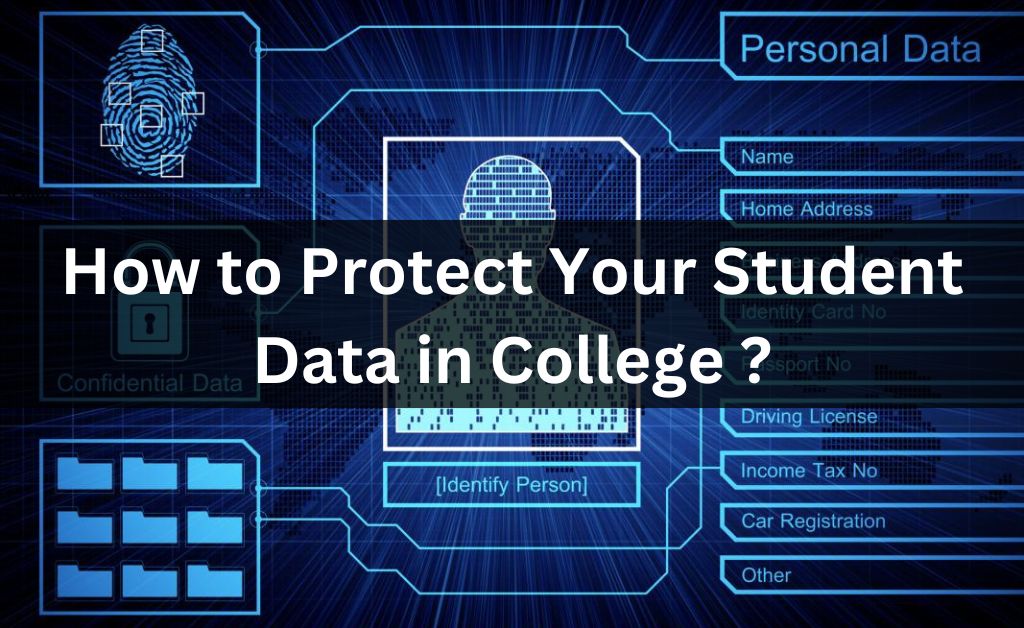In a world driven by data, you need to be conscious about your data and how to protect it. Schools are collecting more data than ever before for various purposes. As a student, you need to understand what information they collect, how they use it and how this impacts you. This will enable you to take steps to protect your student data.
What data do colleges collect?
Universities collect personal, academic and behavioral data. Personal data can include demographics like age, gender, race and economic status. Academic data includes data such as course enrolment and completion rates. Behavioral data is data from sources like attendance records, participation on learning platforms and extracurricular activities.
How do colleges make use of data?
Schools use college student data to better meet student needs and to improve what they have to offer. By examining analytics, they can improve student enrolment and retention. Analytics also help them to make the best use of their personnel and financial resources.
Help with homework
As a college student, I find I don’t have the time to cope with all my responsibilities and still submit assignments on time. I approach homework experts at EduBirdie and tell them that ‘I need help with my homework’ from online writers. Professional writers will do my homework, such as an essay or assignment, and I will receive a quality paper that’s 100% unique and delivered within the required deadline. I can learn and improve my own writing skills from a well-written sample and get good grades.
Check your school’s data privacy policy
Protecting your student information can start by taking a look at your school’s privacy policy. When it comes to privacy, college students usually have a policy in place to protect students. Check for the following when examining the policy.
- Statements and examples of acceptable and unacceptable uses of data
- Information about third-party applications that use student data and how to opt in or out.
- Plans on how to monitor and audit compliance.
- Consequences of non-compliance.
- Information about federal, state and local laws pertaining to the collection of student data.
- Regular training of employees on policies relating to data use.
You may be able to opt out of sharing certain information by filling in opt-out forms. This may be directory information like your name, majors, etc. or details like grades. At some colleges, you may have the chance to opt out of sharing your browsing information with third parties.
Be careful about which Wi-Fi networks you use
If you use public networks and access personal or financial information on them, you risk having data stolen. Keep this in mind if you like to work in places like local coffee shops or study spaces. When you use your university’s Wi-Fi network, be aware that monitoring of your internet activity takes place.
Using a virtual private network adds a layer of security. It connects you to a private server that scrambles the information and changes your IP address before connecting to the internet. You need to be careful about which VPN you use. You don’t want one with a limited range of servers that throttle your internet connection.
Other methods to keep your personal data secure
Create strong passwords: Weak passwords make you vulnerable because hackers can use software to crack them. Use the longest password you can and include upper and lower case letters, numbers and special characters. Don’t use personal information to create passwords, and vary your passwords across accounts.
Know how to spot phishing attempts: Always check an email sender’s address because scammers often use ones that only vary by one letter or character from a legitimate address. Always think twice before clicking a link in an email, and don’t download suspicious attachments. They may contain malware that allows hackers to access your personal information.
Use two-factor authentication:Using 2FA provides you with an extra layer of security. This means that after you input your login details, you need to input additional information, like a code sent to your cell phone, to access the account.
Don’t share accounts: You may want to share accounts like Netflix or Spotify to save money, but you have to put personal data into work, and giving another person access isn’t a good idea.
Conclusion
Awareness about your student data and its safety is important. Using the above tips can help to ensure that your personal and academic information stays safe from any threats to security and privacy. With it, you will stay safe from cyber attackers and also learn the basics of it, which will help you in the long run.
Author’s Bio
Sven Eggers believes that writers have to keep themselves highly updated and love their clients to produce the kind of work that everyone would love. Keeping this thing in mind, he reads a lot, keeps track of every new update in the writing field and actively participates in social media forums dedicated to writers, editors and college essay help providers.





